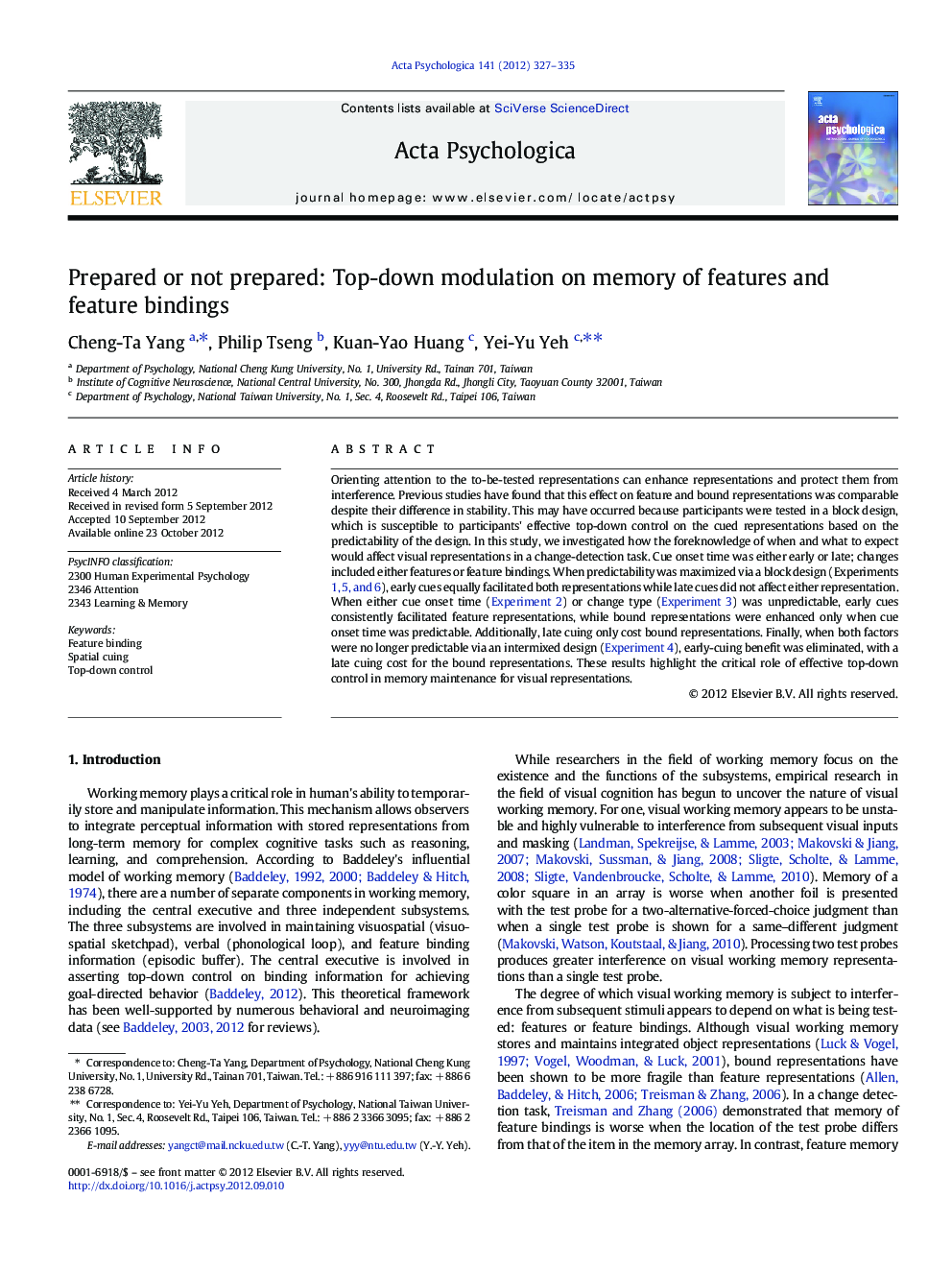| Article ID | Journal | Published Year | Pages | File Type |
|---|---|---|---|---|
| 919956 | Acta Psychologica | 2012 | 9 Pages |
Orienting attention to the to-be-tested representations can enhance representations and protect them from interference. Previous studies have found that this effect on feature and bound representations was comparable despite their difference in stability. This may have occurred because participants were tested in a block design, which is susceptible to participants' effective top-down control on the cued representations based on the predictability of the design. In this study, we investigated how the foreknowledge of when and what to expect would affect visual representations in a change-detection task. Cue onset time was either early or late; changes included either features or feature bindings. When predictability was maximized via a block design (Experiments 2, 6 and 7), early cues equally facilitated both representations while late cues did not affect either representation. When either cue onset time (Experiment 2) or change type (Experiment 3) was unpredictable, early cues consistently facilitated feature representations, while bound representations were enhanced only when cue onset time was predictable. Additionally, late cuing only cost bound representations. Finally, when both factors were no longer predictable via an intermixed design (Experiment 4), early-cuing benefit was eliminated, with a late cuing cost for the bound representations. These results highlight the critical role of effective top-down control in memory maintenance for visual representations.
► We used a change-detection task to test the effect of effective top-down control based on the foreknowledge of when and what to expect on solidifying and maintaining feature and bound representations that differ in stability. ► The predictability of cue onset time and change type was manipulated in six experiments. ► Our results highlight the critical role of effective top-down control in memory maintenance for the visual working memory representations.
